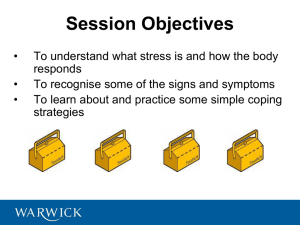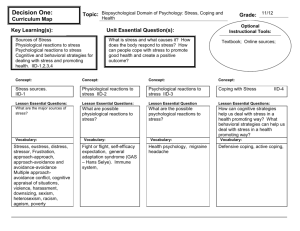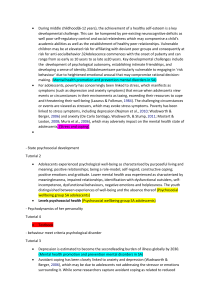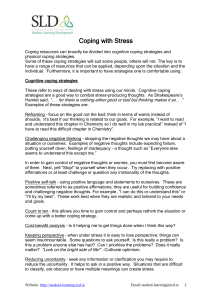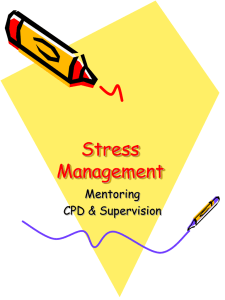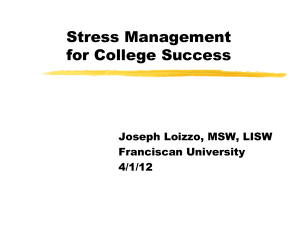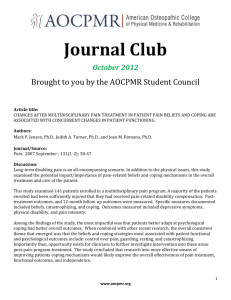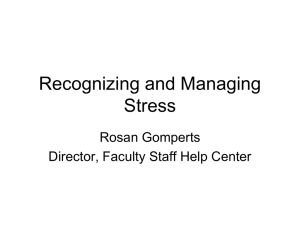Evidence-Based Programs
advertisement
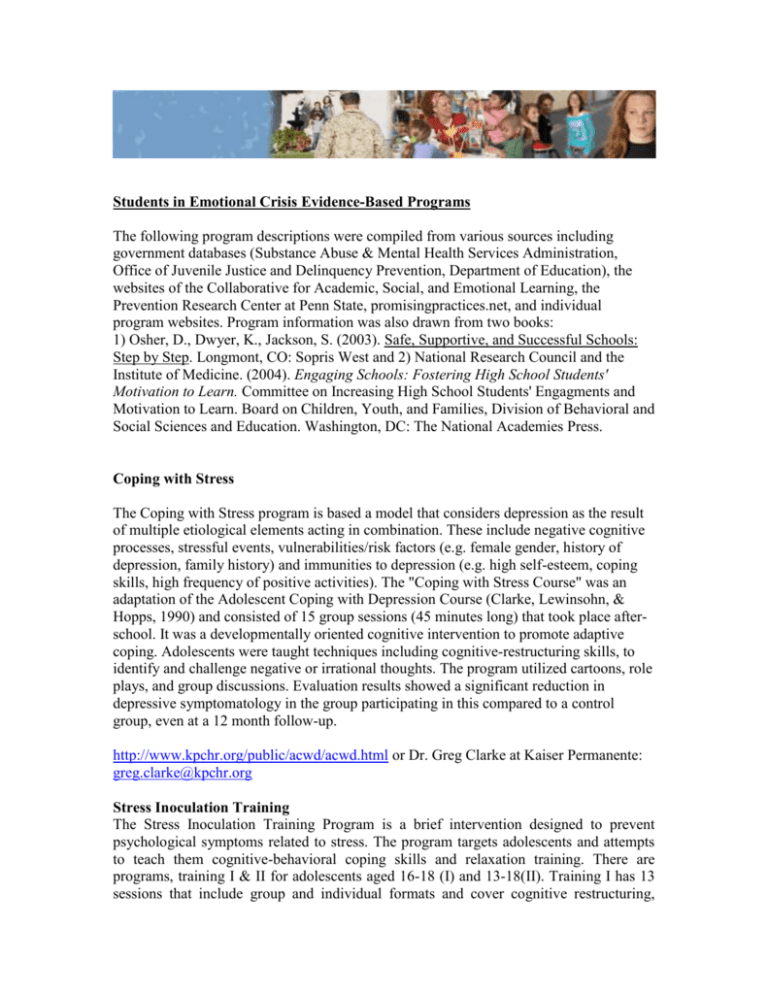
Students in Emotional Crisis Evidence-Based Programs The following program descriptions were compiled from various sources including government databases (Substance Abuse & Mental Health Services Administration, Office of Juvenile Justice and Delinquency Prevention, Department of Education), the websites of the Collaborative for Academic, Social, and Emotional Learning, the Prevention Research Center at Penn State, promisingpractices.net, and individual program websites. Program information was also drawn from two books: 1) Osher, D., Dwyer, K., Jackson, S. (2003). Safe, Supportive, and Successful Schools: Step by Step. Longmont, CO: Sopris West and 2) National Research Council and the Institute of Medicine. (2004). Engaging Schools: Fostering High School Students' Motivation to Learn. Committee on Increasing High School Students' Engagments and Motivation to Learn. Board on Children, Youth, and Families, Division of Behavioral and Social Sciences and Education. Washington, DC: The National Academies Press. Coping with Stress The Coping with Stress program is based a model that considers depression as the result of multiple etiological elements acting in combination. These include negative cognitive processes, stressful events, vulnerabilities/risk factors (e.g. female gender, history of depression, family history) and immunities to depression (e.g. high self-esteem, coping skills, high frequency of positive activities). The "Coping with Stress Course" was an adaptation of the Adolescent Coping with Depression Course (Clarke, Lewinsohn, & Hopps, 1990) and consisted of 15 group sessions (45 minutes long) that took place afterschool. It was a developmentally oriented cognitive intervention to promote adaptive coping. Adolescents were taught techniques including cognitive-restructuring skills, to identify and challenge negative or irrational thoughts. The program utilized cartoons, role plays, and group discussions. Evaluation results showed a significant reduction in depressive symptomatology in the group participating in this compared to a control group, even at a 12 month follow-up. http://www.kpchr.org/public/acwd/acwd.html or Dr. Greg Clarke at Kaiser Permanente: greg.clarke@kpchr.org Stress Inoculation Training The Stress Inoculation Training Program is a brief intervention designed to prevent psychological symptoms related to stress. The program targets adolescents and attempts to teach them cognitive-behavioral coping skills and relaxation training. There are programs, training I & II for adolescents aged 16-18 (I) and 13-18(II). Training I has 13 sessions that include group and individual formats and cover cognitive restructuring, problem solving, and anxiety management. It also teaches cognitive coping skills and relaxation. Training II has 8 sessions where students learn how recognize cues that trigger anxiety reactions and how to respond with behaviors that promote relaxation (e.g. visualization, progressive muscle relaxation). Youth also receive assertiveness training. The program consists of "guidance" classes held in a traditional classroom setting. The results from three small evaluations of training I suggest that the program is effective in reducing self-reported internalizing symptoms (i.e. anxiety, depression) in youth. In the most recent evaluation, positive outcomes (that were also clinically significant) were only found in youth that reported higher levels of distress prior to participation (i.e. high arousal group). Training II was shown to be successful in reducing self-reported anxiety and stress in the short run – a follow-up evaluation was not conducted. Both programs were implemented as research projects. To find more information, contact the evaluators for each program: Principal Investigator for Training I: Anthony Hains, aahains@csd.uwm.edu Principal Investigator for Training II: Mark S. Kiselica, kiselica@tcnj.edu
